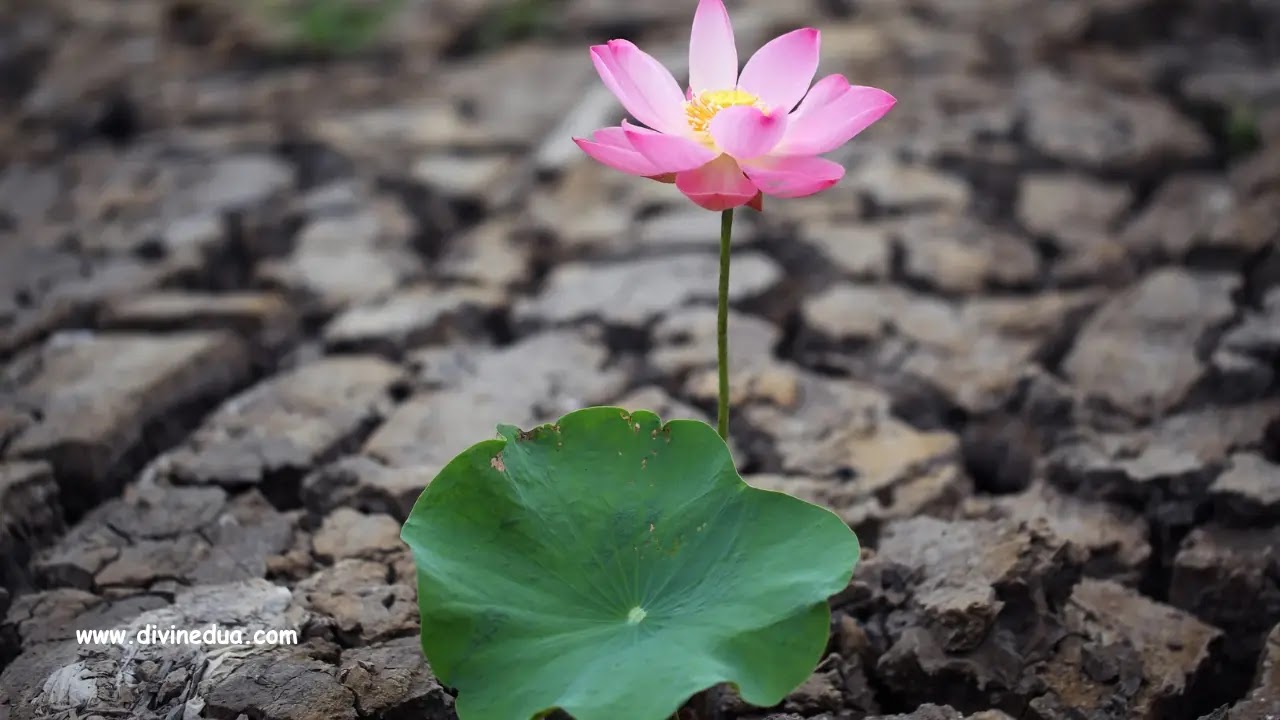“And My Life Changed…”: Real Stories of the Transformative Power of Adhkar
In our previous guides, we have explored the “what” and the “how” of the morning and evening Adhkar. We have learned the specific words, their virtues, and the proper etiquette of reciting them. But one question remains, the most important question of all: “What actually happens when you make dhikr a non-negotiable part of your life?”
This is not an article about theory. This is an article about results. It is a journey into the lives of real people—people who faced hardship, anxiety, and uncertainty, and found their rescue in the simple, yet profound, act of remembering Allah.
The stories you are about to read are not fairy tales. They are testaments to the promise of Allah. They are about the subtle shifts and the profound transformations that occur when a person builds a fortress of dhikr around their life. From divine protection in moments of danger to unexpected doors of provision opening, the impact of Adhkar is real and tangible.
Prepare to be inspired. But more importantly, prepare to be convinced that you too can create your own story of transformation, starting today.
Story 1: The Unseen Fortress – A Tale of Protection
One of the most profound effects of the morning and evening Adhkar is the creation of an unseen fortress of divine protection around the believer. This is not just a metaphor; it is a reality experienced by the righteous throughout the ages. One of the most famous stories in this regard is that of the great companion, Abu Ad-Darda (may Allah be pleased with him).
A man once came rushing to Abu Ad-Darda and exclaimed, “O Abu Ad-Darda, your house is on fire!”
In a display of incredible calm and unshakeable faith, he replied, “It has not caught fire. Allah would not do that because of the words I heard from the Messenger of Allah (ﷺ).”
He had recited a specific dua that morning, and his certainty in the Prophet’s promise was absolute. They went to investigate, and they found that a great fire had indeed consumed the entire neighborhood, burning all the houses surrounding his. Miraculously, when the fire reached his house, it stopped, leaving it completely untouched as if protected by an invisible wall.
The Dua That Built the Fortress
When asked about the words he had said, Abu Ad-Darda shared the comprehensive dua for well-being that he never failed to recite. The very same dua we have learned:
اللَّهُمَّ إِنِّي أَسْأَلُكَ الْعَافِيَةَ فِي الدُّنْيَا وَالْآخِرَةِ، اللَّهُمَّ إِنِّي أَسْأَلُكَ الْعَفْوَ وَالْعَافِيَةَ فِي دِينِي وَدُنْيَايَ وَأَهْلِي وَمَالِي…
Allahumma inni as’alukal-‘afiyata fid-dunya wal-akhirah…
“O Allah, I ask You for well-being in this world and the Hereafter. O Allah, I ask You for forgiveness and well-being in my religion, my worldly affairs, my family and my wealth…”
The Lesson from the Story
This story is a powerful testament that the words of the Prophet (ﷺ) are a promise. The Adhkar are not just supplications; they are a shield. When recited with yaqin (absolute certainty), they create a real, tangible protection by the command of Allah. Abu Ad-Darda did not just recite the words; he lived by their certainty, and Allah showed him the result in the most astonishing way.
Story 2: The Locked Doors – A Story of Rizq and Relief
Sometimes, Allah tests us by closing every worldly door we knock on, only to teach us that His door is the one that is always open. This is a personal story, shared by the author of this blog, about a time when all means were exhausted, and relief came from where it was least expected.
For a chapter of my life, I found myself adrift in the uncertainty of unemployment. Every door I knocked on seemed to be firmly locked. I reached out to friends, sent applications, and tried every worldly means I could think of, but nothing worked. With no income and no clear direction, a feeling of helplessness began to set in. Yet, one thing remained: an unshakeable faith that my provision was with Allah.
After exhausting all other options, I realized it was time to turn exclusively to the One whose treasures never run out. I decided to change my nights. I would wait for the stillness of the late night, for the house to fall silent, so I could have my appointment with Allah in the last third of the night.
There, in the privacy of the darkness, I would make wudu and stand before my Lord. In sujood, I didn’t just recite words; I poured out my heart. I spoke of my fears, my desperation, and my hopes. There were no distractions, no one watching—just a sincere, desperate conversation with the Hearer of all prayers.
This state of devotion continued into the dawn. I would not stop at Fajr, but would remain in my place, whispering the morning Adhkar, holding on to a profound sense of trust that Allah hears every cry.
Then, the miracle began to unfold. Not with a trickle, but a flood. Job offers started arriving from companies I had never even contacted. Doors that were sealed shut began to swing open, one after another, in ways I could never have imagined. My life was completely turned around.
The Lesson from the Story
This experience taught me a truth that I carry in my soul: the keys to locked doors are not in the hands of people, but in the hands of Allah. When you turn to Him with sincere dhikr and desperate dua, especially in the blessed hours of the night and morning, He can and will create a way for you from avenues you could never have conceived. He is indeed Ar-Razzaq (The Provider).
Story 3: The Restless Heart – A Story of Tranquility
In our fast-paced world, one of the most sought-after treasures is a quiet mind and a tranquil heart. Many search for it in worldly remedies, yet often overlook the most potent source of peace. This is a story of how the simple act of evening dhikr became an anchor for a soul tossed by the waves of anxiety.
A young student, overwhelmed by the pressures of his studies and the uncertainty of his future, found his nights becoming his greatest enemy. As soon as his head hit the pillow, his mind would race with a relentless stream of worries, making sleep feel like a distant shore he could never reach. He would toss and turn for hours, eventually falling asleep from sheer exhaustion, only to wake up feeling more tired than when he went to bed.
Feeling desperate, he sought advice from an elder, who listened patiently and then asked a simple question: “Do you build your fortress before you sleep?” The student was confused. The elder smiled and explained the concept of the evening Adhkar, not as a routine, but as a conversation with Allah to entrust your worries to Him.
That night, the student decided to try. Instead of reaching for his phone, he sat on his bed, cupped his hands, and recited the Three Quls, gently blowing into his hands and wiping over his body as the Prophet (ﷺ) did. He recited Ayat al-Kursi, feeling the weight of each word promising a guardian from Allah. The student concluded with the dua of entrusting his soul to his Lord: “Bismika Rabbi wada’tu janbi…”
He did not feel an instant miracle, but for the first time in a long time, his mind had a focus. It was anchored to the beautiful words of remembrance instead of drifting in an ocean of worries. That night, he fell asleep faster. The next night, it was a little easier. And the night after, a sense of calm began to settle in his heart before he even closed his eyes.
The Lesson from the Story
The evening Adhkar are the ultimate form of spiritual self-care. They are a practical tool for “unplugging” from the anxieties of the dunya (world) and “plugging in” to the infinite peace of Allah’s remembrance. As Allah Himself says in the Qur’an, “Verily, in the remembrance of Allah do hearts find rest.” (Qur’an 13:28). This story is a living example of that divine truth.
Your Turn: How to Create Your Own Story of Transformation
The stories you have read are not ancient legends or miracles reserved for a select few. They are the natural outcome of a simple, yet profound equation: sincere dhikr + unwavering yaqin (certainty) = divine intervention from Allah.
You have the exact same tools they had. It’s you who have access to the same blessed words and the same merciful Lord. You too can witness the transformative power of Adhkar in your own life, and it all begins with one small, consistent step.
1. Choose Your Fortress: The Morning or Evening Adhkar
Do not feel overwhelmed. Start with one routine. If your mornings are chaotic, focus on building your fortress at night. If you seek a blessed start to your day, begin with the morning Adhkar.
To help you, we have prepared complete, authoritative guides with every supplication you need:
- For a blessed start to your day, begin here: Your Authoritative Guide to the Morning Adhkar
- For a peaceful and protected night, begin here: Your Authoritative Guide to the Evening Adhkar
2. Be Consistent, Not Perfect
The most beloved deeds to Allah are those that are done consistently, even if they are small. Start with just two or three essential duas, like Ayat al-Kursi and the Three Quls. Recite them every single day until they become as natural as breathing. Consistency is the key that unlocks the door to profound results.
3. Recite with a Present Heart
Take a moment to understand the meaning of the words you are saying. Connect your heart to the supplication. When you say the dua for protection, truly feel yourself seeking refuge in Allah’s might. When you make istighfar, feel the sincerity of your repentance. This is how the words transform from a routine on the tongue to a conversation with your Lord.
The next story of transformation could be yours. It is waiting to be written, and it begins with the simple decision to remember Allah, today.
Every Heart Has a Story Waiting to Be Told
From a house saved from a raging fire, to locked doors of provision swinging open, to a restless heart finding tranquility—the evidence is clear. The morning and evening Adhkar are not just words; they are a direct line to Allah’s mercy, protection, and boundless generosity.
They are the tools He has given us to navigate the challenges of this life with faith and certainty. The power is not in the stories themselves, but in the promise of Allah that they prove to be true.
Your own journey with dhikr is unique and personal. The blessings you will witness will be tailored to your life, your needs, and your sincerity. Start today, remain consistent, and watch with a certain heart as your own beautiful story unfolds.
Share Your Story and Inspire Others
Has the remembrance of Allah changed your life in a small or a big way? Your story could be the spark of hope that another heart needs to hear. We invite you to share your experiences in the comments below, or to connect with us directly. Let’s create a community of inspiration together.




